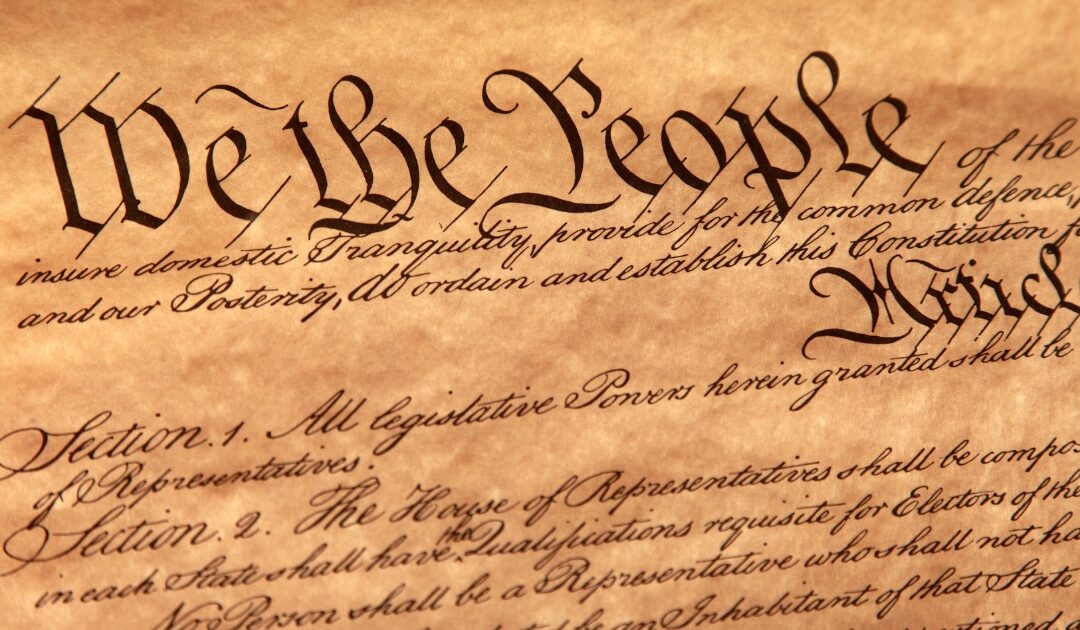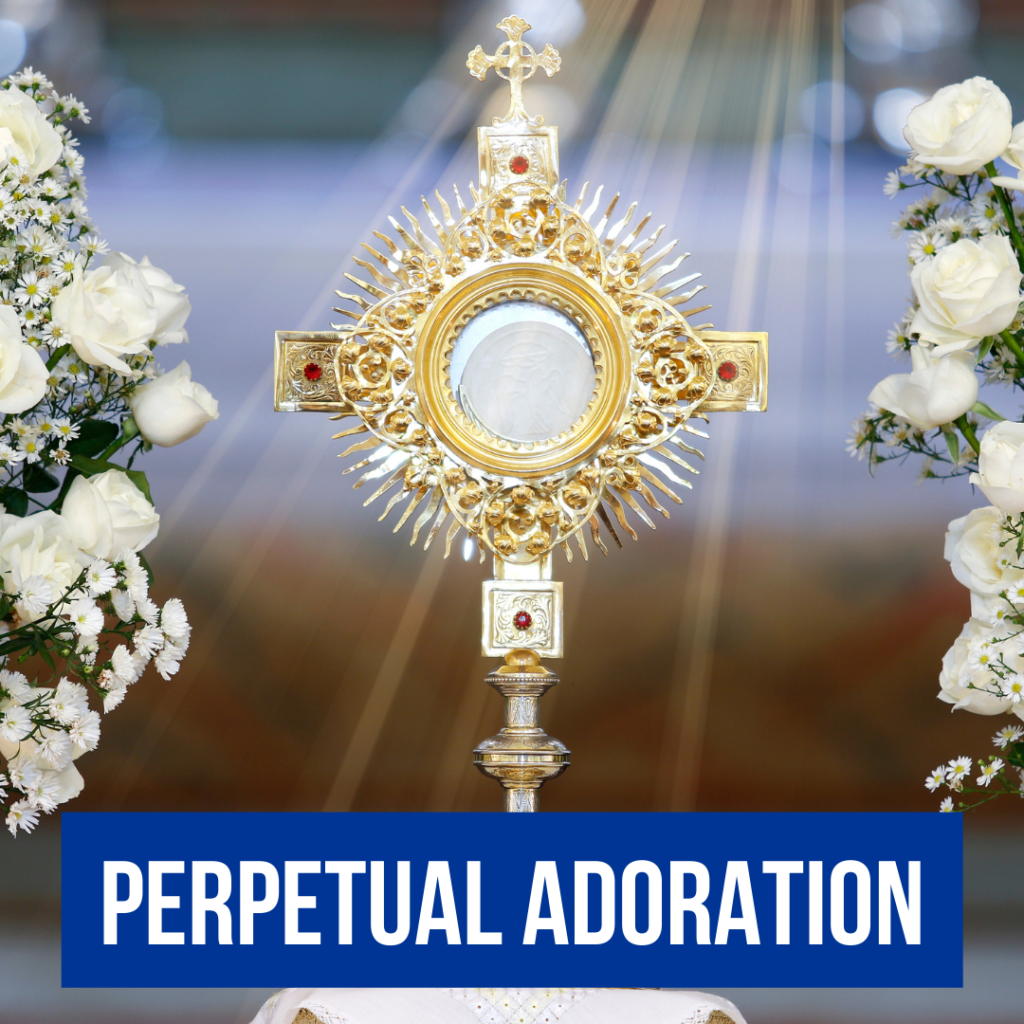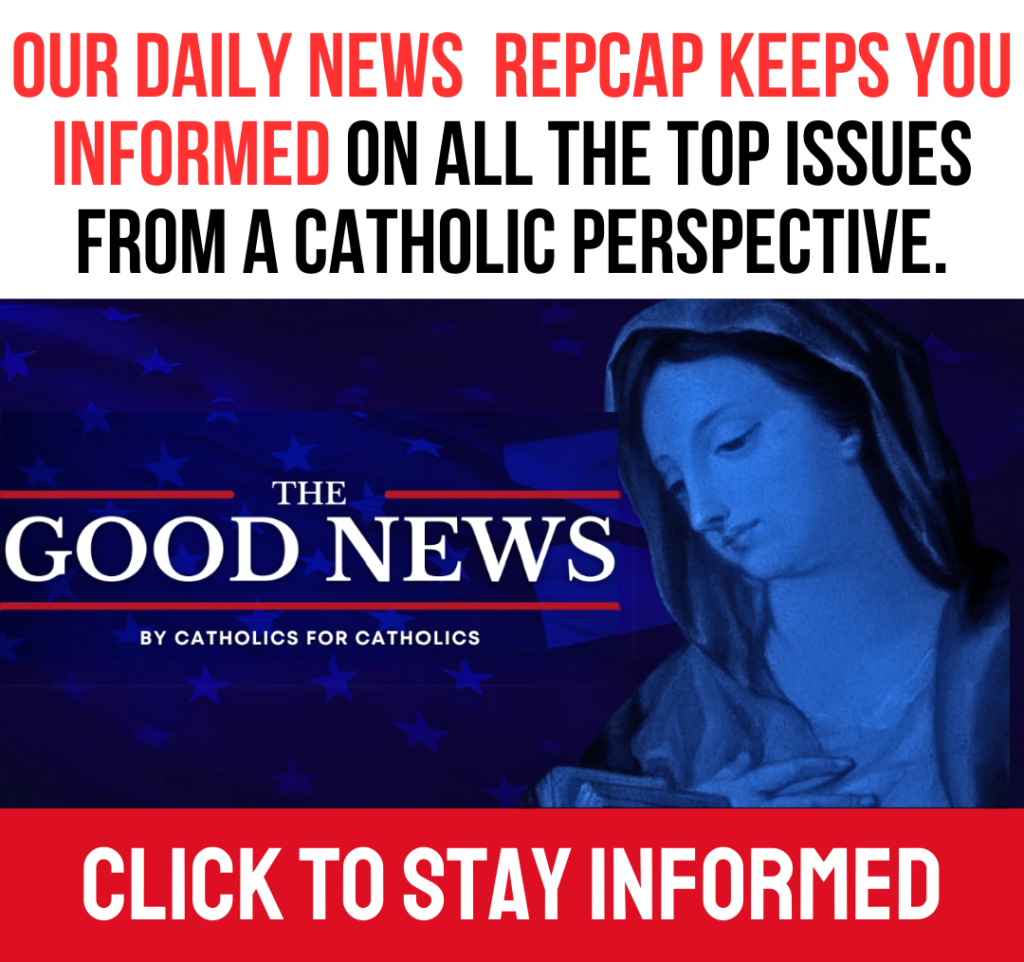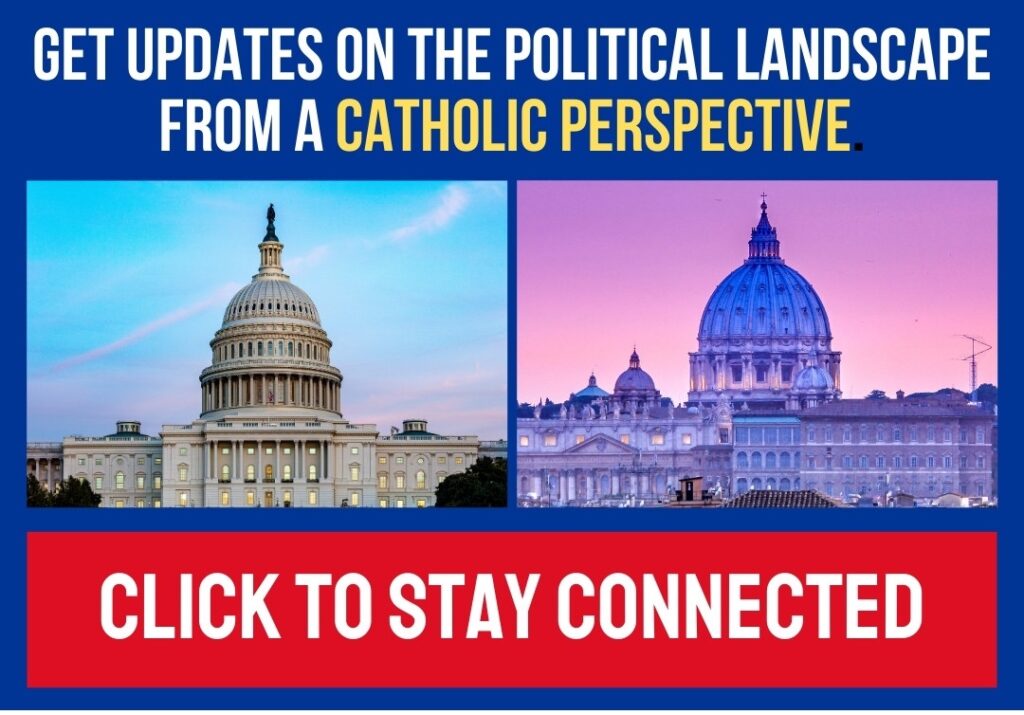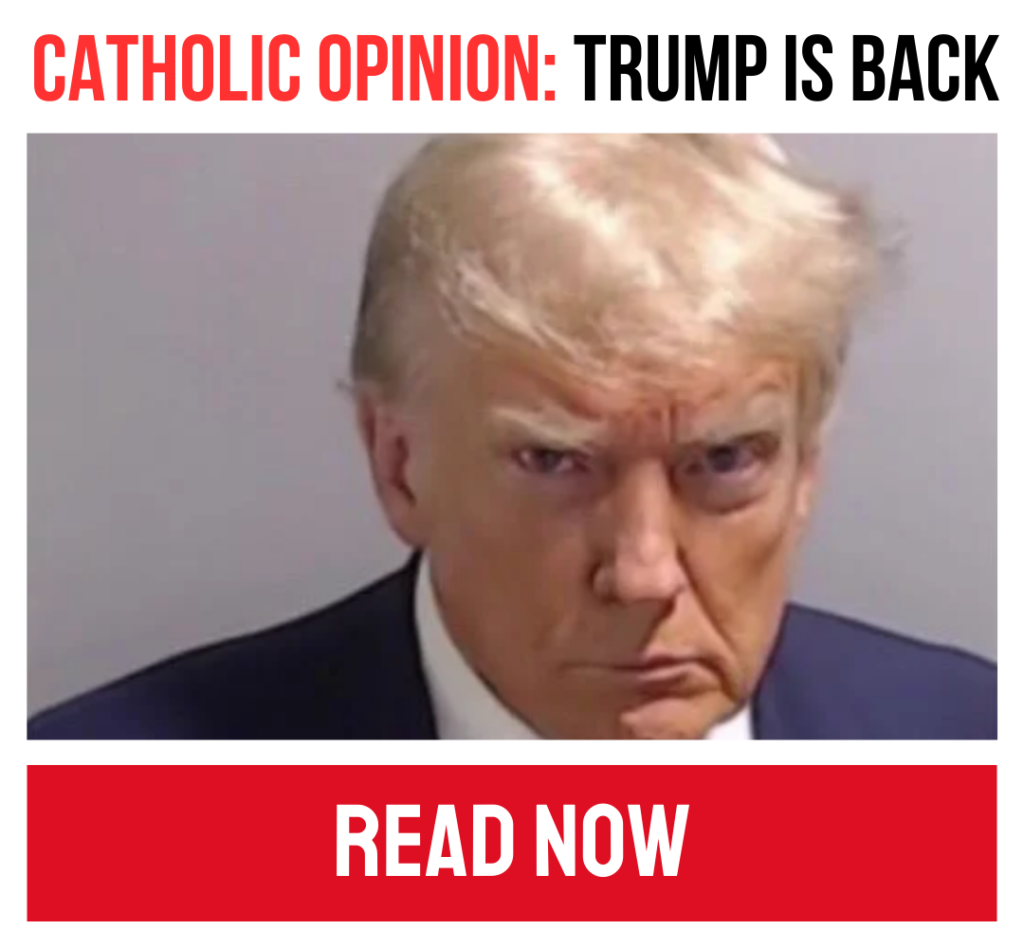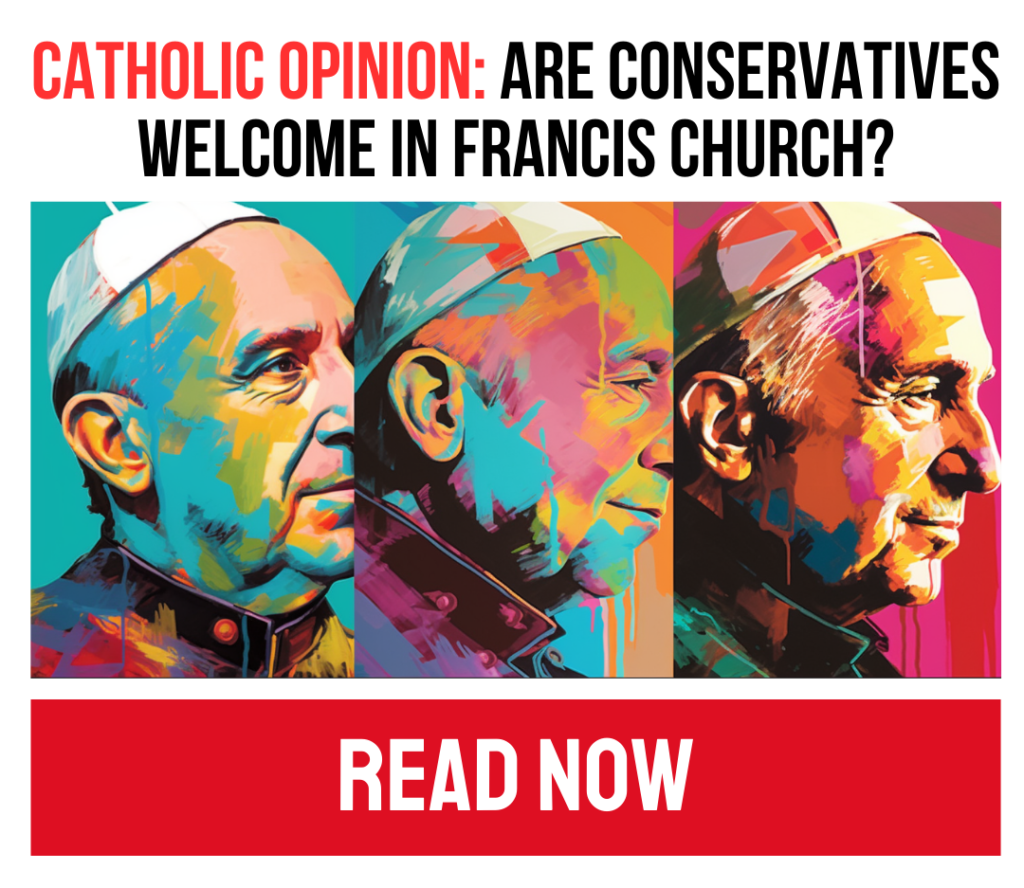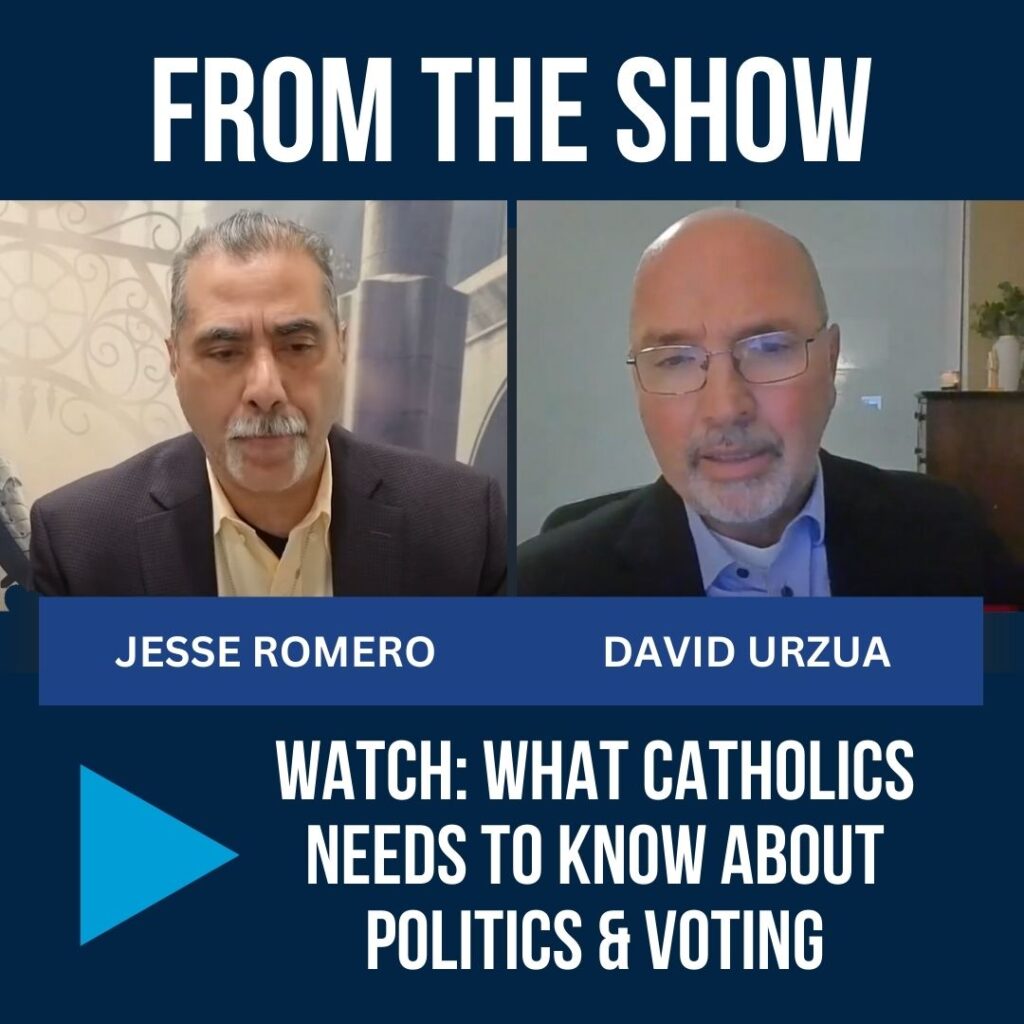The following meditation was written by a Catholic Priest.
Since its inception, the United States of America has understood itself to be a nation founded upon a core conviction, one which would be sorely tested in the Civil War and is still being tested in America today in the ongoing political battle over abortion: that all human beings are created equal, that they are endowed by their Creator with certain unalienable Rights, that among these are Life, Liberty and the pursuit of Happiness. Has America lived up to her creed? The record is mixed. There have been glorious triumphs and egregious failures. At stake in this ongoing American drama of life and death is life or death for America. She must choose (cf. Dt 30:15-20), and not just once, but again and again.
The causes of America’s past and present failures to be to [her] own self true are multiple, some of them complex. One simple but major cause, however, may have been a weakness in the very form of government the founding fathers decided to establish for the nation. Certain weaknesses in institutions and people are paradoxical in that, as weaknesses, they potentially possess dark power; should they become subjugated by powers of darkness and thereby become instruments of them, not only can they deter and harm the good, they can destroy it.
In their writing of the Constitution, the founding fathers gave evidence of having been in possession of extraordinary wisdom in matters of statecraft; nevertheless, a number of subsequent events in American history give us reason to ask if they took sufficient account of the enduring effects of Original Sin operative in varying degrees within the souls of human beings. That they erected constitutional checks and balances to protect the citizens and the government itself against dictatorial encroachments shows that they understood—although not necessarily as adherents of revealed religion—the negative power of “fallen” human nature, that we human beings are not angels. But were they equally cognizant of the degree to which we can be manipulated by demons? It seems not. To the ever-perceptive demonic mind, whose watchword is wait (cf. 1Pt 5:8), that specific lack of foresight, were it to be woven like thread of undetected weakness into the very fabric of the representative democracy, would have spelled an open-ended opportunity to engineer the nation’s unraveling.
Be this as it may, the founding fathers wanted their new nation to enjoy abiding political stability, an essential good of the body politic, which good some philosophers had maintained could be provided most effectively by a good and wise king. But a king, good and wise or not, the founding fathers most definitely did not want; the desired and necessary stability was to be provided instead by judicious policies to be enacted by elected representatives in a constitutional democratic republic. Judicious decisions, sound decisions, are prudent decisions. Prudence is one of the four cardinal virtues, the others being temperance, fortitude and justice; excellence in one of the four is seldom found apart from approximately the same degree of excellence in the other three. It stands to reason, then, that judicious policies are more often than not enacted by judicious, that is, prudent leaders who in general are virtuous people.
Thus, the ongoing test the American republic would face would be this: Virtuous leaders, leaders of sound judgment, a sine qua non for the political stability of the nation, in order to be elected and govern, would perforce presuppose a citizenry the majority of whom were sufficiently virtuous, specifically, sufficiently prudent to elect them. To recast the question: Did the founding fathers grasp fully the danger to the very survival of the nation that this de facto requirement could pose in the event that the citizenry failed to meet it? America, conceived in Liberty and dedicated to the proposition that all men are created equal, would not long endure unless both her people and leaders—primarily the voters who, if need be, can “vote the bums out”—were on the whole virtuous: strong in resisting evil and its power to darken the mind and corrupt the will; strong in upholding what is objectively good. Prolonged, persistent, gross failure in virtue—virtue being necessary for the pursuit of the three foundational goods of a just society: the common good, the good of individual citizens and families, and the most basic good of all, life itself—that failure of the American people, we must understand today more than ever, would result in the downfall and death of the American republic. It could transmute the land of the free and the home of the brave into demonic chaos. Robespierre & Company redux, the demonic endgame.
In fact, the founder fathers in writing the Constitution were acutely aware of the peril the nation would undergo if the citizenry failed to be a virtuous people. George Washington, Thomas Jefferson, and James Madison all spoke of this troubling concern that weighed so heavily upon their hearts. Madison expressed it succinctly and eloquently. He wrote:
Is there no virtue among us? If there be not, we are in a wretched situation. No theoretical checks, no form of government, can render us secure. To suppose that any form of government will secure liberty or happiness without any virtue in the people, is a chimerical idea. If there be sufficient virtue and intelligence in the community, it will be exercised in the selection of these men; so that we do not depend upon their virtue, or put confidence in our rulers, but in the people who are to choose them.
Washington foresaw that the academic degrees earned by some, in his words, “a refined education,” would not suffice to foster indirectly a “national morality” among the populace at large; religion would always be needed.
Whatever may be conceded to the influence of refined education . . . reason and experience both forbid us to expect that national morality can prevail in exclusion of religious principle.
Ben Franklin was reported to have said something immediately following the conclusion of the Constitutional Convention in September of 1787 that may have been prescient. If so, it would confirm that he too knew that the document that he and the other founders had just finished, on which the ink was not yet dry, had its Achilles’ heel. A lady awaiting news of the Convention’s outcome asked, “Well, Dr. Franklin, what have we got, a monarchy or a republic?” “A republic,” he replied, “if you can keep it.” (Notice that he said, “if you can keep it” and not “if we can keep it.”) In a similar vein, sometime earlier he said this: “Only a virtuous people are capable of freedom. As nations become corrupt and vicious, they have more need of masters.”
Only a virtuous people can keep a Constitutional republic such as America’s and with it, by the very keeping of it, the rule of law, justice, and freedom. Their virtue, not the laws of government, is what first makes them a free people; constitutionally guaranteed freedoms only acknowledge and confirm the freedom proper to their God-given human nature. Virtue is the natural law, so to speak, of their freedom; not written with ink on parchment, but with conviction upon their hearts; freely chosen and happily pursued, it enables them to be a living, natural law unto themselves: in a word, free.
On this Memorial Day, when we rightly pray for the repose of the souls of our fellow citizens who in their military service, having sworn “to defend the Constitution of the United States against all enemies, foreign and domestic,” gave the last full measure of devotion to our Country, let us pray too with the Sixteenth American President, that these dead shall not have died in vain—that this nation, under God, shall have a new birth of freedom—and that government of the people, by the people, for the people, shall not perish from the earth. May Christ the King liberate America from her present maniacal march toward self-destruction, and by the cords of virtue draw her to Himself and in Him to the even greater freedom bestowed in Baptism as sheer gift with the three theological virtues of faith, hope, and charity: The supernatural, grace-grounded freedom of the adopted sons and daughters of God. Our Lady of America, pray for us!
America! America!
God mend thine every flaw,
Confirm thy soul in self-control,
Thy liberty in law!
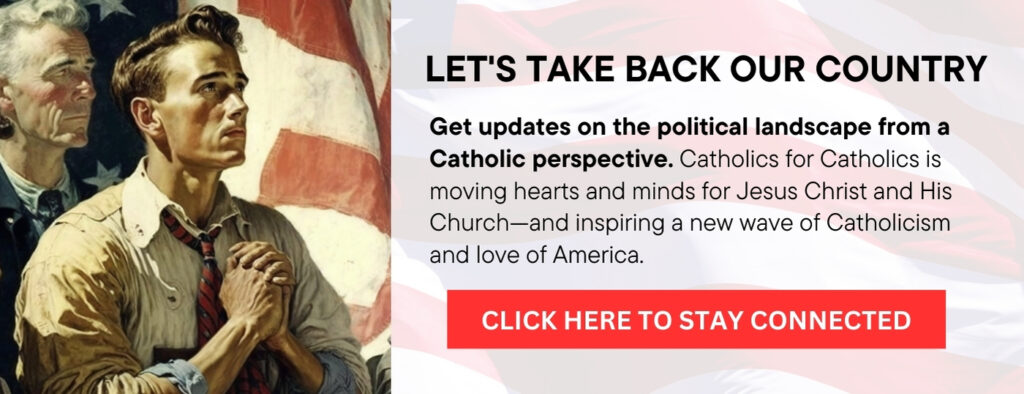
GET UPDATES ON THE POLITICAL LANDSCAPE FROM A CATHOLIC PERSPECTIVE.
Click here to sign-up and stay in the loop.
Catholics for Catholics is moving hearts and minds for Jesus Christ and His Church—and inspiring a new wave of Catholicism and love of America. Use the form below to STAY CONNECTED with the fastest-growing Catholic movement across the United States.
